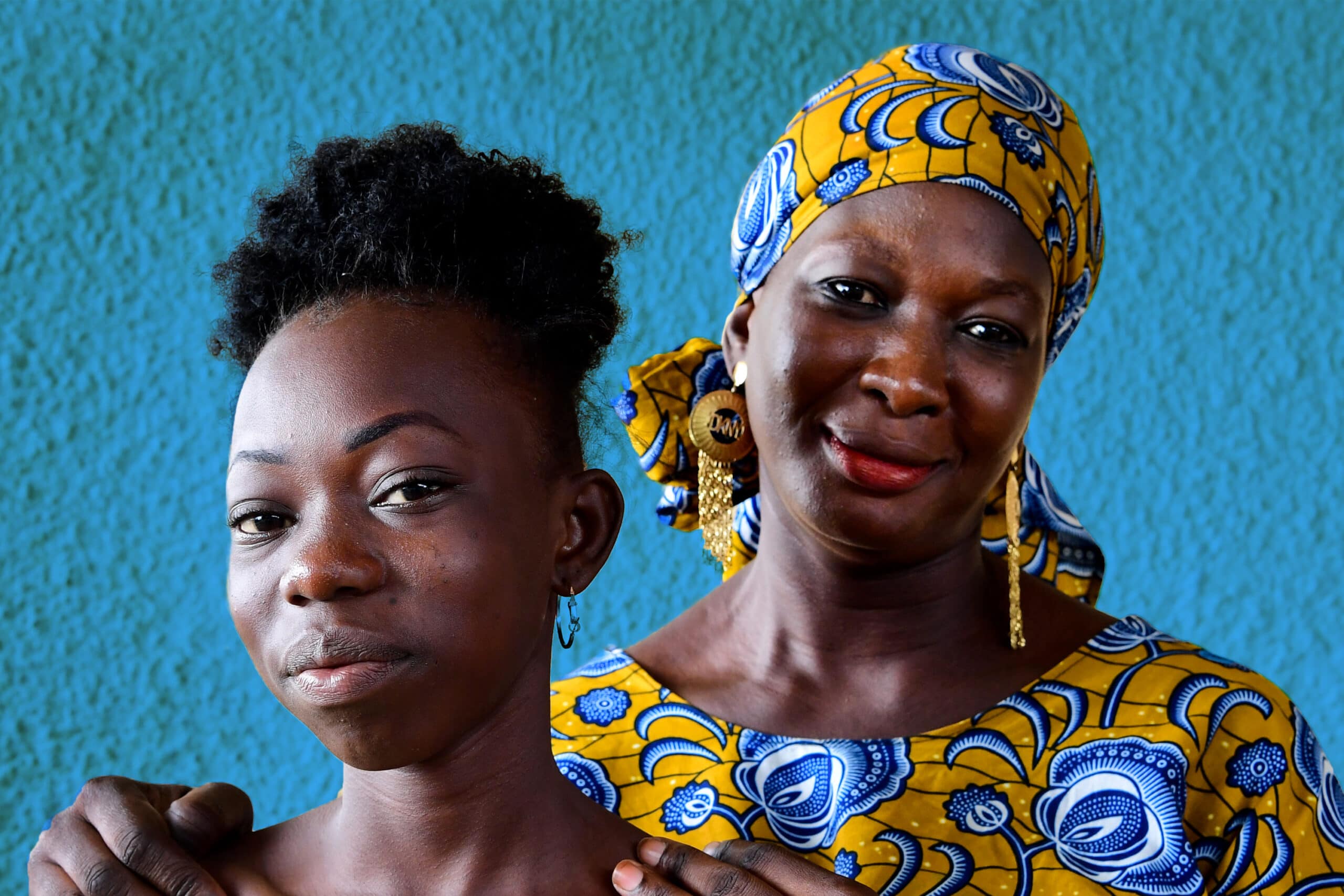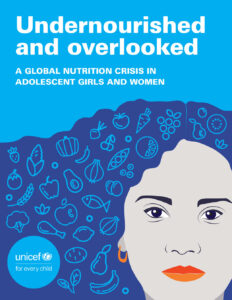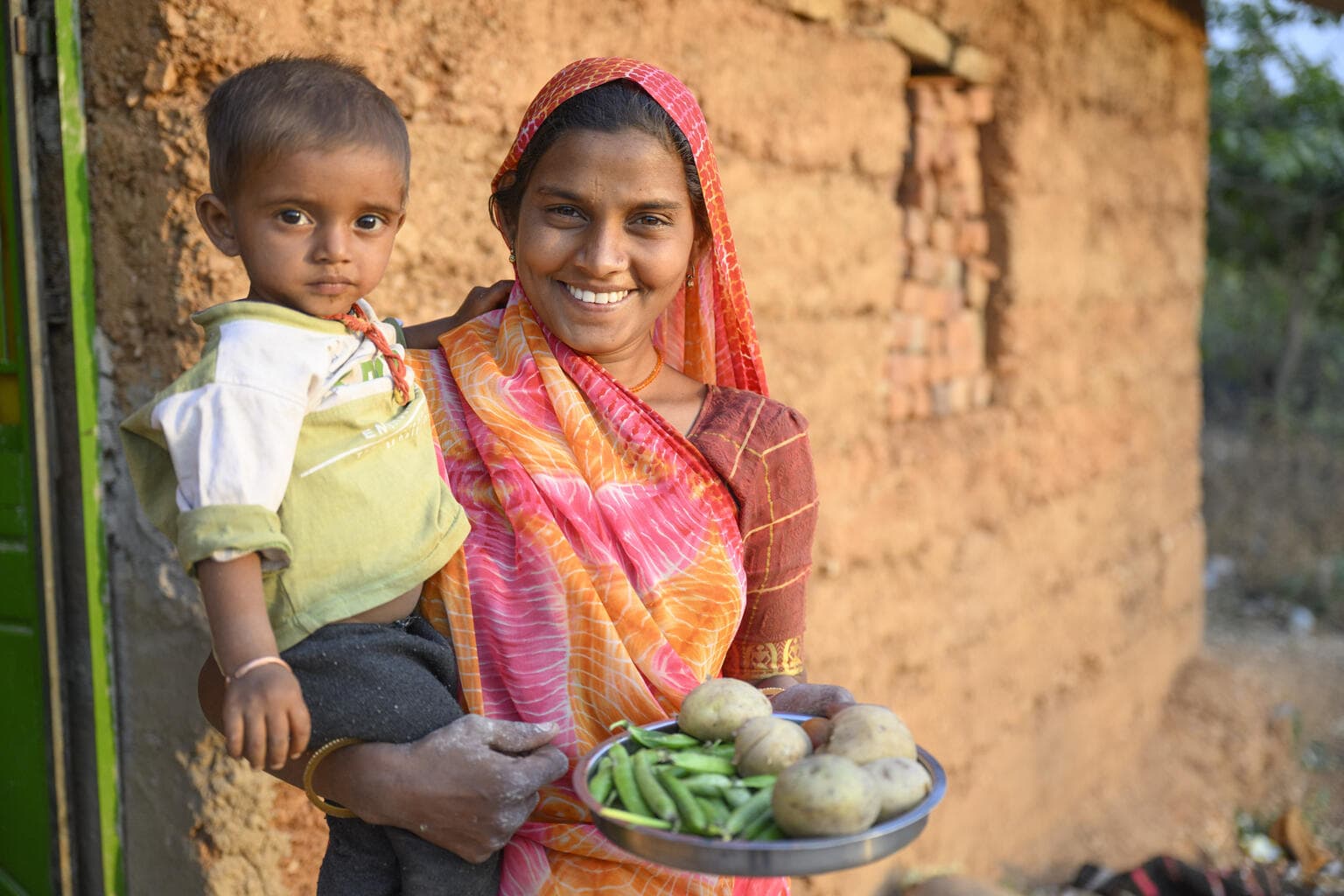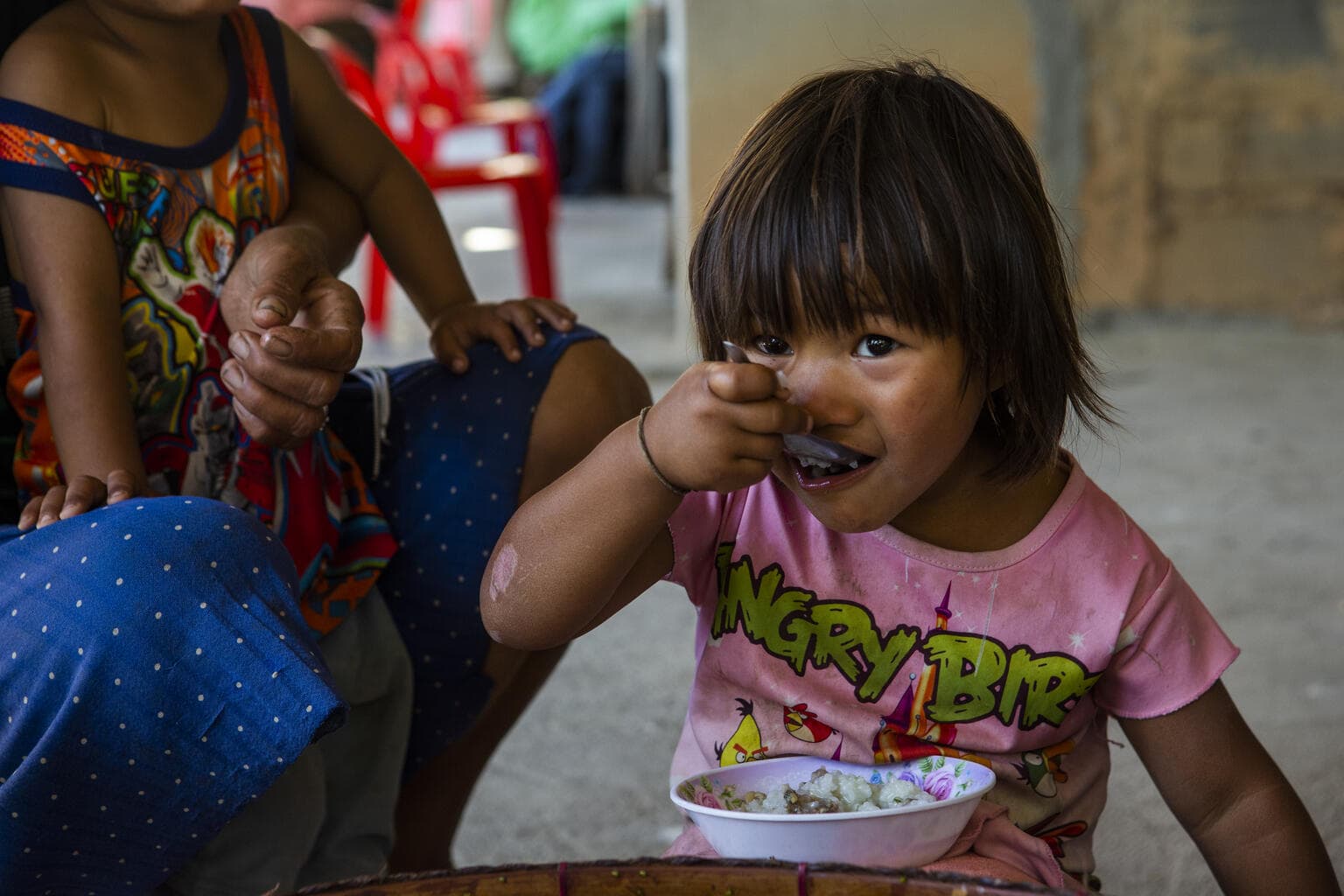Undernourished and Overlooked
A Global Nutrition Crisis in Adolescent Girls and Women

Poor nutrition harms all adolescent girls and women of reproductive age but the risks to their and their children’s health and well-being are particularly high during pregnancy and the period following childbirth.
UNICEF’s 2022 Flagship Child Nutrition Report examines the latest data and evidence on the status, trends and inequities in the nutritional status of adolescent girls and women. It sheds light on the barriers they face in accessing nutritious diets, utilizing essential nutrition services and benefitting from positive care practices. The report is accompanied by a statistical booklet that presents the latest key statistics on children’s and women’s nutrition.

Download the statistical booklet
The report highlights eight key findings, which show that that the world is failing to respond with policies and programmes that make the right to good nutrition a reality for all adolescent girls and women. At least two-thirds — or more than a billion adolescent girls and women suffer from undernutrition (underweight and short height), micronutrient deficiencies, and anaemia with devastating consequences for their lives and wellbeing. Progress on nutrition in adolescent girls and women has been slow and the current food and nutrition crisis could worsen it further. Analysis reveals that the number of pregnant and breastfeeding adolescent girls and women suffering from acute malnutrition has soared by 25 per cent since 2020 in 12 countries hardest hit by the global food and nutrition crisis. This means that the number of affected girls and women has risen from 5.5 million to 6.9 million.
The nutrition crisis affects adolescent girls and women worldwide, but poorer regions and disadvantaged girls and women bear the brunt of undernutrition and anaemia. The report further notes that women, especially those living under the shadow of poverty, harmful norms and discriminatory laws, struggle to access nutritious diets, essential nutrition services and positive nutrition and care practices. The report calls on governments and partners to work together on ten key actions to transform the food, health and the social protection systems that aim to improve access to nutritious diets and essential nutrition services, as well as to strengthen nutrition and care practices for adolescent girls and women, everywhere.


